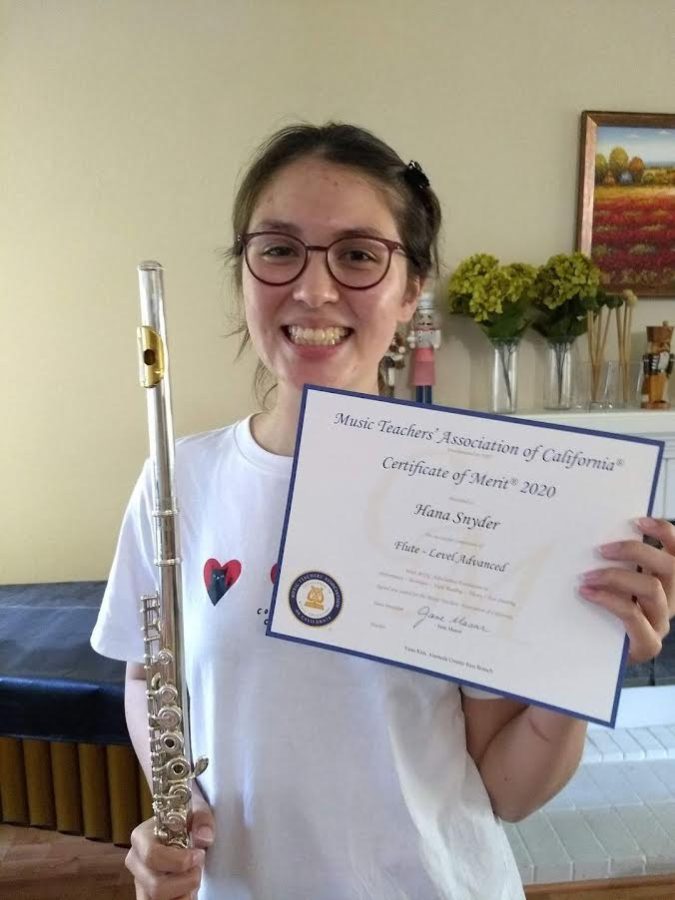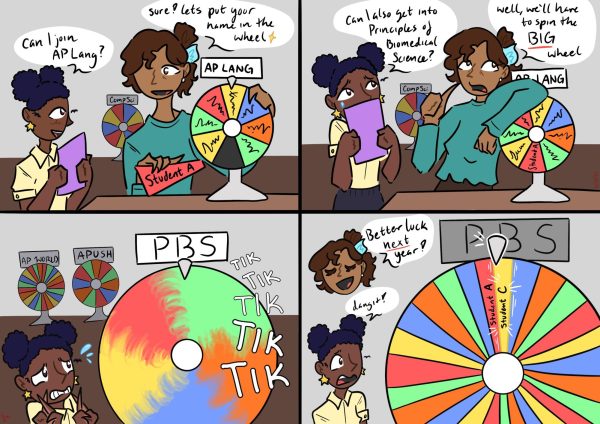New instrumental exam procedures lack fundamentals
Senior Hana Snyder holds her certification for passing the Advanced Level in a previous CM exam.
The 2022 Certificate of Merit (CM) instrumental exams are like a movie with no climax–hours of practice to end up filming in front of no one.
CM is a standardized music curriculum sponsored by the Music Teachers’ Association of California (MTAC) for 16 instruments, including piano, violin, and flute. For years, students have been evaluated live for performance, technique, ear training, sight reading, and music theory. Whether they pass to the next of 10 or 11 levels solely depends on their exam day performance.
Now, the program is online, and the one-day stress has transformed into a long-term ordeal. Instead of playing in front of an examiner, students are required to record and upload their pieces on the MTAC website. Visiting expensive hotels for a three-hour theory test has been replaced with hoping for peace and quiet at home. The 40 seconds to sight read, or play an excerpt without prior practice, is more stressful with a camera to replay every fumble.
There’s no awkward nodding to the judge’s compliments or listening to the students before you. Instead, it’s an indefinite homework assignment that everyone procrastinates on.
The theory exams have replaced fill-in-the-blanks and drawing musical notation with multiple choice questions. These rely more on educated guesses instead of thorough understanding. In addition, since the questions are computer-graded, answers are available online and cheating is a piece of cake.
In other words, the CM exams no longer feel like exams.With COVID-19 restrictions, MTAC understandably can’t transition to fully in-person. But a hybrid program could be a more effective option because it eliminates the hassle of recordings but is still convenient.
Theory and ear training tests should remain online – communal gatherings are still a risk, even if students are all social distancing. But the playing portion should be in person if students have tested negative so they gain experience playing in front of a judge without any retakes. Throughout the exam, the judge and performer are seated at a distance to prevent the latter from peeking at their live grading.
Students are expected to submit recordings of their pieces by March 15, but hopefully in the future, MTAC will be issuing examination dates instead.
Opinion columns reflect the view of the staff writer.

Senior Shravya Salem Sathish is in for Round 3 of The Californian, now as Opinions Editor. This year, she’s looking forward to tackling more exciting...


